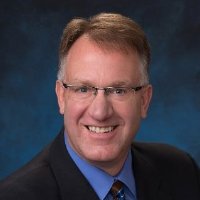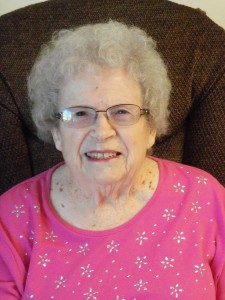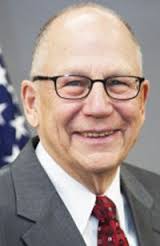
By David Bordewyk
Running an Italian restaurant plus a small bed and breakfast keeps owner Yucimy on her feet from sunrise to well past sunset. It’s 7 a.m. and she is already preparing omelets for her five B&B guests. Her cheerful greeting helps everyone shake off a night’s sleep.
Meanwhile, Yucimy’s employees are busy moving tables and chairs to the sidewalk outside the restaurant, which fronts the town’s main avenue, and are inviting passerbys to stop in for breakfast.
Late afternoon will have Yucimy and staff, some of whom are family, busy pouring drinks and planning dinner menus for the B&B guests. At night’s end, Yucimy can be found with her feet up in the small living room just off the restaurant’s kitchen, catching a few minutes of TV.
All in a day’s work for this privately owned business. Welcome to Vinales, Cuba.
In Havana, Rosana Vargas welcomes visitors to her jewelry store, where she shares her small business story. She started making fine silver jewelry five years ago in her small apartment. Today she has more than 40 people employed in her stylish, privately owned shop along a busy capital city street.
How much does she pay in taxes to the government for her small business success, she is asked.
“Too much,” Rosana says, sounding ever like a well-seasoned capitalist.
Except this isn’t Wall Street or Main Street. This is Cuba.
Along with 28 other Americans from the Midwest, I traveled to Cuba for seven days last week on a “people to people” tour, a kind of educational/tourism tour of the island nation that has the approval of both countries. An employee of a tourism company run by the Cuban government was our guide.
The trip gave a view of a country with compelling contrasts and day-to-day economic struggles for many Cubans that dropped our jaws. It also introduced us to some wonderful, inspiring Cuban people.
To be sure, Cuba remains very much a country ruled by leaders who belong to the Communist Party. Repression of speech, assembly and the press remain very much in play in Cuba today. The government pulls and pushes the levers that control much of Cuba’s way of life. It’s been that way since soon after Fidel Castro overthrew the Batista regime in 1959.
Yet, doors are opening. Capitalism, entrepreneurship and self-reliance are no longer negatives in Cuba. They are happening today in Havana and other parts of the country.
It will be difficult for the government to put the brakes on this growing capitalistic wave. President Raul Castro or the next leader may decide to encourage even more of this kind of growth. Who knows?
This is a country where the average official salary of a state government worker is the equivalent of about $25 per month. By the way, most Cubans work for the government or government-owned enterprises.
Teachers, lawyers and other professionals can make more money tending bar or waiting tables in a restaurant than they can in the jobs they were trained and educated to do.
There is a saying in Cuba that “if you pretend to pay me, I will pretend to work.”
Pretending to work for pretend pay is nothing new in Cuba. That’s been going on for many years.
What’s new is the rapidly burgeoning capitalism.
When the Soviet Union collapsed in 1991, the Cuban economy went into a free fall. Within a few years, the Cubans realized that growing tourism was necessary to help stave off collapse.
Tourism in Cuba has indeed accelerated the past 20 years. Canadians, Germans, British, Chinese, among others, travel to Cuba. They come for the rum, cigars, salsa music and the sun. The number of foreign tourists coming to Cuba has risen from about 750,000 in 1995 to 3.5 million two years ago.
And now the Americans are coming. The warming of relations between the two countries put in motion by the Obama administration means more and more American tourists are wanting to go to Cuba. We bumped into fellow Americans most everywhere we went during our week-long trip.
Cubans on the street we met cheer what Obama did. They express anxiety about President Trump.
Which takes us back to the small town of Vinales, in the heart of Cuba’s tobacco-growing region. The town has been a tourist destination for many years with bed-and-breakfasts throughout. Today, you see construction in much of the town. Residents are adding a room or two where they can to their small homes to accommodate the growing tourist tide.
Will growth in tourism pull Cuba out of its many economic problems? Probably not. Economic stability likely will take much more, given the scope of challenges.
A personal observation that overrides the nuts and bolts of Cuba’s wobbly GDP is this: My travel experience was that Cubans are genuine, friendly and welcoming. They smile wide and extend a hand when you tell them where you are from. They are willing to chat, even if language is a barrier. (Although almost no one seemed to know where South Dakota was located in America. The closest point of reference that rang a bell with Cubans was the Minnesota Twins. Cubans love baseball.)
More than once I heard Cubans on the street tell me they are eager for the day when the embargo imposed on their country by the United States will end. They believe such a move would make lives better for average Cubans.
In the meantime, they keep building B&Bs (casa particulares), opening privately owned restaurants (paladares) and welcoming more American tourists.
David Bordewyk is executive director of the South Dakota Newspaper Association, Brookings. He participated in a people to people tour of Cuba along with journalists and others from the Midwest March 5-12.
-30-










